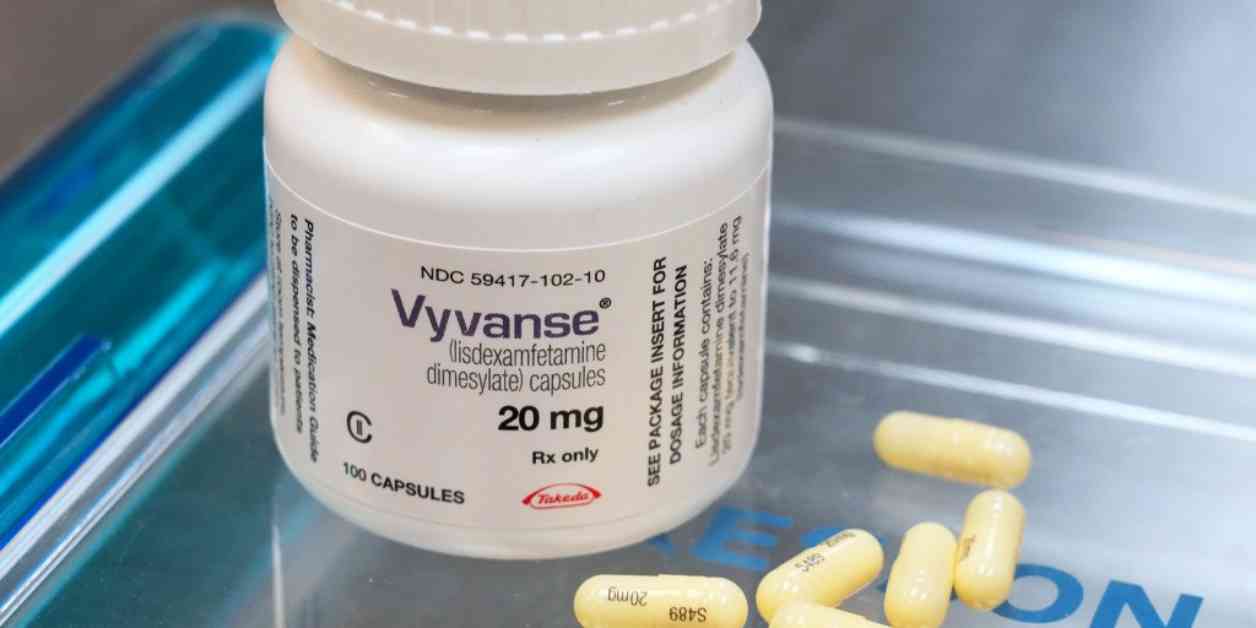The Drug Enforcement Administration (DEA) has recently made a significant move to alleviate the ongoing shortage of ADHD medication in the United States by increasing the production limit for Takeda Pharmaceutical’s popular drug Vyvanse and its generic versions. This decision comes in response to a request from the Food and Drug Administration (FDA) in July and aims to ensure a steady supply of this crucial medication for patients in need.
Background on Vyvanse Shortage
For years, ADHD drugs have been facing shortages, with various factors contributing to the problem. In October 2022, the FDA issued a warning about a shortage of Adderall, a medication manufactured by Israel-based Teva Pharmaceutical Industries, due to manufacturing delays. This shortage led to a surge in demand for alternatives, including Takeda’s Vyvanse, exacerbating the supply issues in the market.
Vyvanse, also known as lisdexamfetamine, is classified by the DEA as a schedule II controlled substance, indicating its high potential for abuse. As a result, strict prescribing safeguards are in place to regulate its usage. The increased production limit for lisdexamfetamine, amounting to 6,236 kilograms, has been divided to address both domestic and foreign demand for the medication.
DEA’s Response to the Shortage
In a notice issued on Tuesday, the DEA announced the adjustment in production limits for Vyvanse and its generic counterparts, allowing for a 24% increase in the overall production capacity. This decision was deemed necessary to prevent further disruptions in the supply chain and ensure that patients have access to the medication without interruptions.
According to the DEA, the production limit increase includes 1,558 kilograms allocated to meet the rising domestic demand for Vyvanse and an additional 4,678 kilograms to address the heightened foreign demand for finished dosage medications. By making these adjustments, the DEA aims to guarantee a stable and sufficient supply of lisdexamfetamine for patients in the U.S. and globally.
Impact on Patients and Pharmaceutical Industry
The shortage of ADHD medications has had a significant impact on patients who rely on these drugs to manage their symptoms effectively. Without access to their prescribed medication, individuals with ADHD may experience difficulties in concentration, impulse control, and overall daily functioning. The increased production limit for Vyvanse and its generics is a positive step towards mitigating these challenges and ensuring that patients receive the treatment they need.
From a pharmaceutical industry perspective, the shortage of ADHD medications has highlighted the importance of maintaining a robust and reliable supply chain. Companies like Takeda Pharmaceutical and its generic counterparts play a vital role in producing these medications, and the DEA’s decision to raise the production limit reflects a proactive approach to addressing market demands and patient needs.
Generic Versions and Market Competition
The FDA approved generic versions of Vyvanse from 11 different drugmakers, including U.S.-based companies like Mallinckrodt and Viatris, UK-based Hikma Pharmaceuticals, and Indian drugmaker Sun Pharmaceutical Industries. This move came after Takeda lost exclusivity over the drug, opening up the market to increased competition among manufacturers.
The availability of generic versions of Vyvanse provides patients with more options for accessing affordable medication while also creating a competitive landscape in the pharmaceutical industry. This competition can drive innovation, lower prices, and improve overall quality in the production of ADHD medications, benefiting both patients and healthcare providers.
In conclusion, the DEA’s decision to increase the production limit for Vyvanse and its generic equivalents is a positive development in addressing the ongoing shortage of ADHD medications in the United States. By ensuring a stable and adequate supply of lisdexamfetamine, the DEA is taking proactive steps to meet the needs of patients with ADHD and maintain the integrity of the pharmaceutical supply chain. This decision demonstrates a commitment to prioritizing patient care and access to essential medications in the face of challenging market conditions.

















